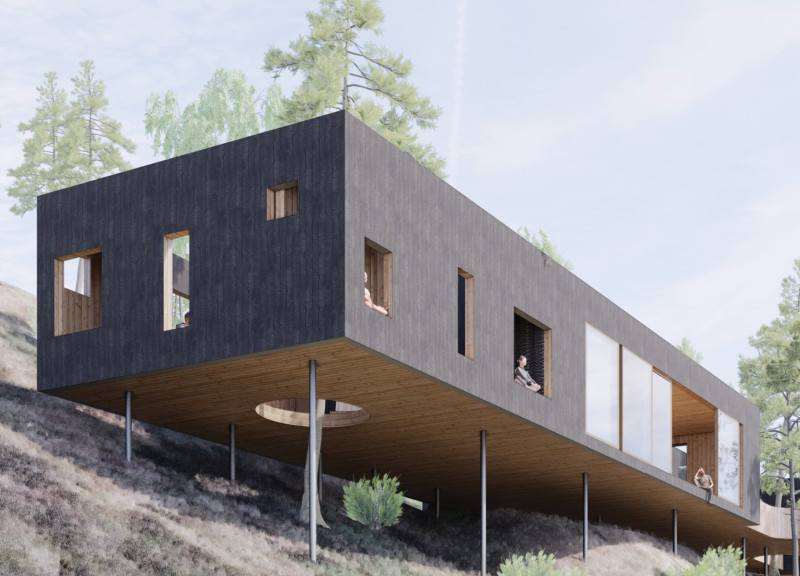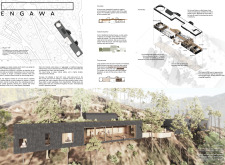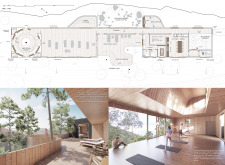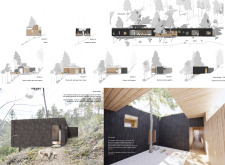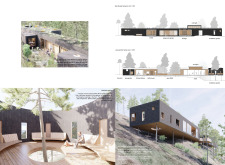5 key facts about this project
The design features a long, slender shape that effectively uses an oblong site while directing its broadside towards the southwest. This orientation takes advantage of the sun's path, enhancing energy efficiency throughout the year. As a yoga house, it emphasizes a connection with nature and encourages introspection, creating a harmonious relationship between indoor spaces and the outdoors.
Circulation and Spatial Organization
The layout includes an engawa along one side, functioning as a walkway that allows easy access to all rooms. This traditional element of Japanese architecture connects the indoors with the outdoors, enhancing the experience for users. At the far end, a meditation garden provides a peaceful destination, inviting moments of quiet reflection.
Thermal Zones and Structure
The design incorporates areas with different thermal characteristics. By leaving large portions of the structure uninsulated, it creates a pavilion-like effect. Heating is concentrated in communal spaces, ensuring a comfortable environment throughout. The building appears to float above the ground, especially on the northern side, with metal columns supported by small point foundations that minimize excavation.
Material Application and Façade
The exterior features charred wood planks treated through the yaki-sugi method, which helps protect the wood while offering a unique visual appeal. This approach complements the surrounding landscape. Inside, warm, oiled pine is used for floors, walls, and ceilings, adding a sense of warmth and comfort to the space.
Interior Details and Unique Features
A large deck area serves as a social space for relaxation and interaction, strategically placed apart from yoga and meditation rooms. As visitors enter, they encounter a tranquil zen garden, where gravel abstractly represents water, enhancing sensory experiences. At the core, a circular meditation garden centers around a tall pine tree that rises through an opening in the floor, creating a focal point that invites contemplation and peace.


